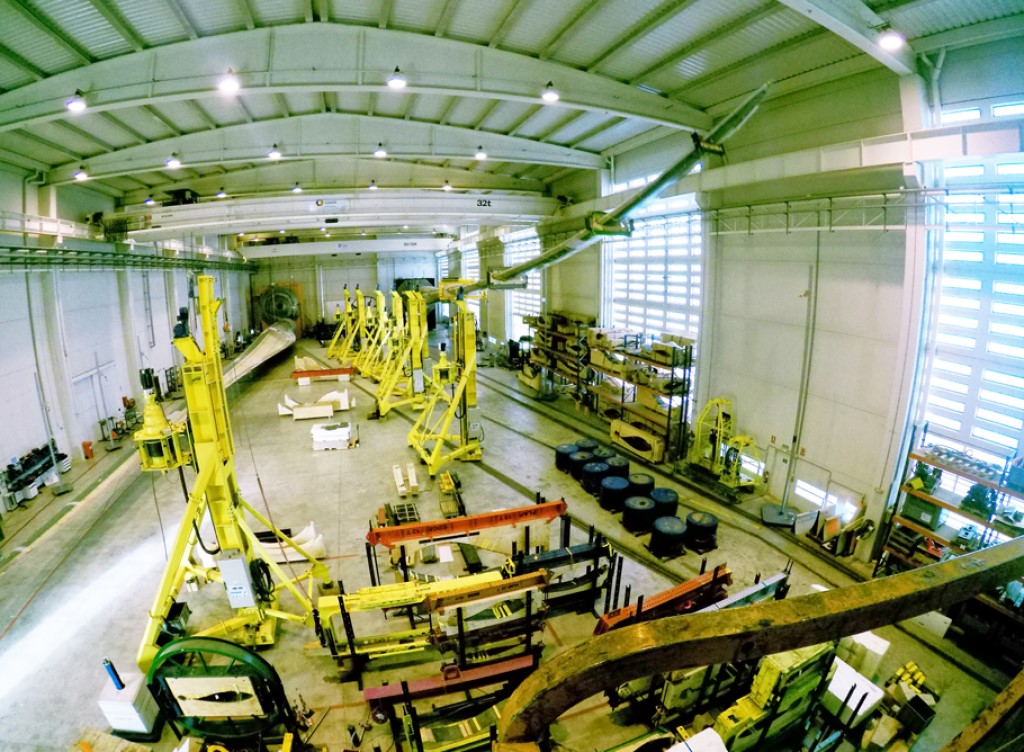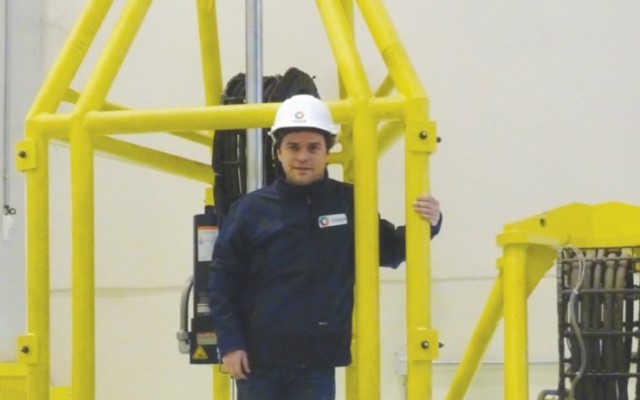
CUSTOMER CHALLENGE
CENER (Centro Nacional de Energías Renovables) - also known as the National Renewable Energy Center of Spain – specializes in applied research and development for several initiatives, including the development of wind power technology. Its Wind Energy Department conducts independent research to improve the overall reliability and efficiency of wind turbines, and collaborates with some of the most influential companies in the growing global wind power industry.
Industry stakeholders come to CENER because it is equipped with some of the most advanced technology infrastructure in the world. The centerpiece of CENER’s wind program is its Wind Turbine Test laboratory (LEA). It is the only facility of its kind in terms of its physical size (30,000 square meters), the power of the equipment it is capable of testing and the variety of technological services it offers.
Located in Sangüesa, a small town 40 km outside Pamplona, the LEA comprises five advanced test laboratories, including one devoted to full-scale structural testing of rotor blades up to 100 meters long. The head of the blade testing lab is Asier Oiz Vázquez, who has been with CENER since the center’s inception in 2002, and with the blade testing group since 2006.
“Our customers are primarily concerned with model validation and performance characterization of rotor blades according to international standards,” Oiz said. “They want to be confident that the tests we perform will deliver the high-quality results they need to validate the design of the blade or achieve certification. In both situations, they require exceptional service. They also expect us to have the best test systems. This is our biggest challenge.”
MTS SOLUTION
To meet its customers’ demands for high-quality results, the CENER blade test laboratory relies on two solutions from MTS. Together, these wind blade testing solutions enable the CENER team to conduct static and fatigue tests on full-scale rotor blades and beams (frameworks) up to 100 meters in the case of static tests, and up to 75 meters in the case of fatigue tests.
Measurement of physical properties are performed to determine essential blade properties such as mass, center of gravity position, length, natural frequencies, damping, mode shapes, stiffness and mass distribution.
Static tests are performed to load the blade at its most severe design load condition. The blade is instrumented so as to obtain applied deflection curve, strain distribution, test bench deflection and bending moment distribution. Electrical winches are employed to achieve precise, coordinated loading at multiple pull points along a blade.
Fatigue tests performed at CENER support multi-point and multi-axial accelerated tests of blades in both flap-wise and edge-wise orientations. The MTS fatigue test solution applies automated cyclic loading to blades at resonant frequency to excite the blade and achieve the desired strain rate. To do this, it employs compact, energy-efficient IREX (Inertial Resonance Excitation) systems, originally developed by MTS and the U.S. National Renewable Energy Laboratory (NREL). Each IREX system integrates two double-ended, fatigue-rated MTS hydraulic actuators, linear side bearings, a hose stand, and adjustable masses.
“Everything that we have from MTS works very well,” Oiz said. “The IREX system in particular is very stable. We have never seen it fail. We are also very pleased because it helps CENER save energy during fatigue testing, which can be extremely energy-intensive.”
CUSTOMER BENEFITS
With the help of MTS testing solutions, the blade test laboratory at CENER enables its customers to address the complete range of full-scale structural static and fatigue testing required for certification according to international standard IEC TS 61400-23. The lab is accredited by ENAC, the Spanish National Accreditation Body, within the scope of IEC TS 61400-23.
“We are a relatively new facility with all the latest technology, including MTS wind turbine blade testing solutions,” Oiz said. “When customers see we have MTS technology, they feel comfortable. The name assures them that the test equipment will operate reliably. We have performed a lot of tests with MTS systems, and that makes our customers more confident.”
Customer confidence in the accuracy and reliability of MTS test solutions, and MTS’ ongoing commitment to problem solving have led to a strong working relationship between the two organizations.
“In my experience, MTS always offers a solution to our needs,” Oiz said. “From the very beginning, MTS wanted a detailed understanding of the kind of tests we were going to carry out so they could develop a solution that would meet our particular needs. That continues today. When CENER needs something, MTS works hard to fulfill our request. And the service they provide is very good.”
Today, CENER and MTS continue to chart the way forward in wind turbine blade testing, exploring new technologies to more accurately simulate the real-world operating environments of ever-longer blade structures.
According to Oiz, “Longer blades, more elastic blades, and biaxial fatigue testing represent the challenges facing wind turbine blade testing in the near future, and MTS seems to understand these very well.”

